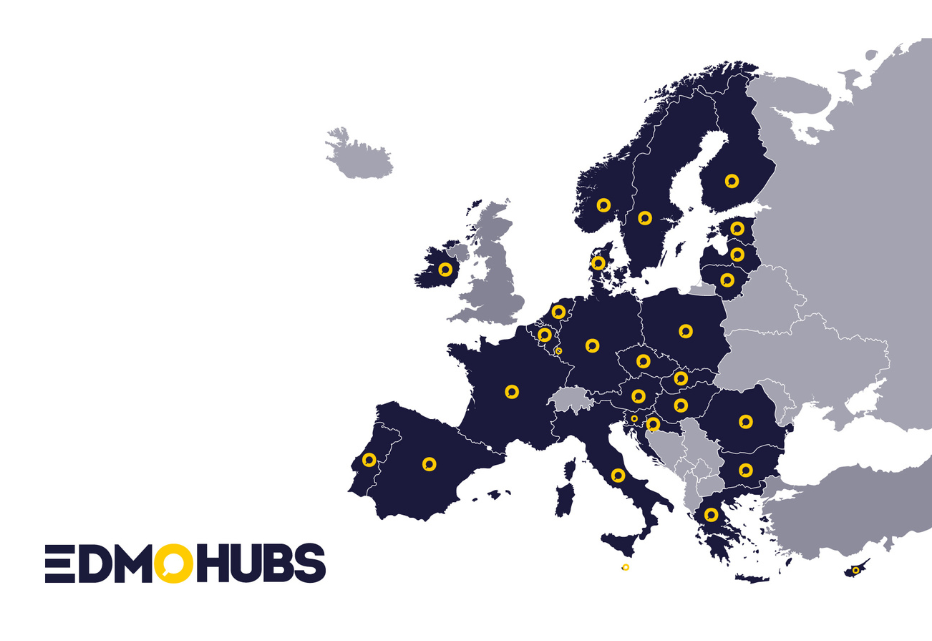
Following the second call for EDMO Hubs, the European Commission has selected six new hubs that will become part of the European Digital Media Observatory (EDMO), strengthening the European ecosystem that works to fight disinformation.
With the six newly established EDMO hubs joining the eight existing ones, the EDMO network will expand its coverage to all 27 EU Member States as well as Norway, in the EEA. The new hubs will sign grant agreements shortly and should be operational by the beginning of 2023. Through the Digital Europe Programme the new organisations will be supported with about €8 million in EU funds. EDMO and its regional hubs are independent from any national or EU public authority.
A panel of independent experts has selected the following projects:
- LAKMUSZ – EDMO Hungarian hub against disinformation
- GADMO – German-Austrian Digital Media Observatory
- BROD – Bulgarian-Romanian Observatory of Digital Media
- MedDMO – Mediterranean Digital Media Observatory (covering Greece, Malta and Cyprus)
- ADMO – Adria Digital Media Observatory (covering Croatia and Slovenia)
- BECID – Baltic Engagement Centre for Combating Information Disorders (covering Estonia, Latvia and Lithuania)
The expanded EDMO network will include Hungary, Austria, Germany, Bulgaria, Romania, Greece, Cyprus, Malta, Croatia, Slovenia, Estonia, Latvia and Lithuania adding to the countries where the EDMO hubs are already at work. The new hubs are an added value to the now well-established network of experts engaged to fight disinformation, bringing a unique potential to understand and act upon specific digital media vulnerabilities in the countries they cover.
By setting up multidisciplinary communities of academic researchers, fact-checkers, media practitioners, and other relevant stakeholders, each hub will:
- Detect and analyse disinformation campaigns, as well as producing content to support mainstream and local media and public authorities in exposing harmful disinformation campaigns;
- Organise media literacy activities at national or multinational level;
- Provide support to national authorities for the monitoring of online platforms’ policies and the digital media ecosystem.
